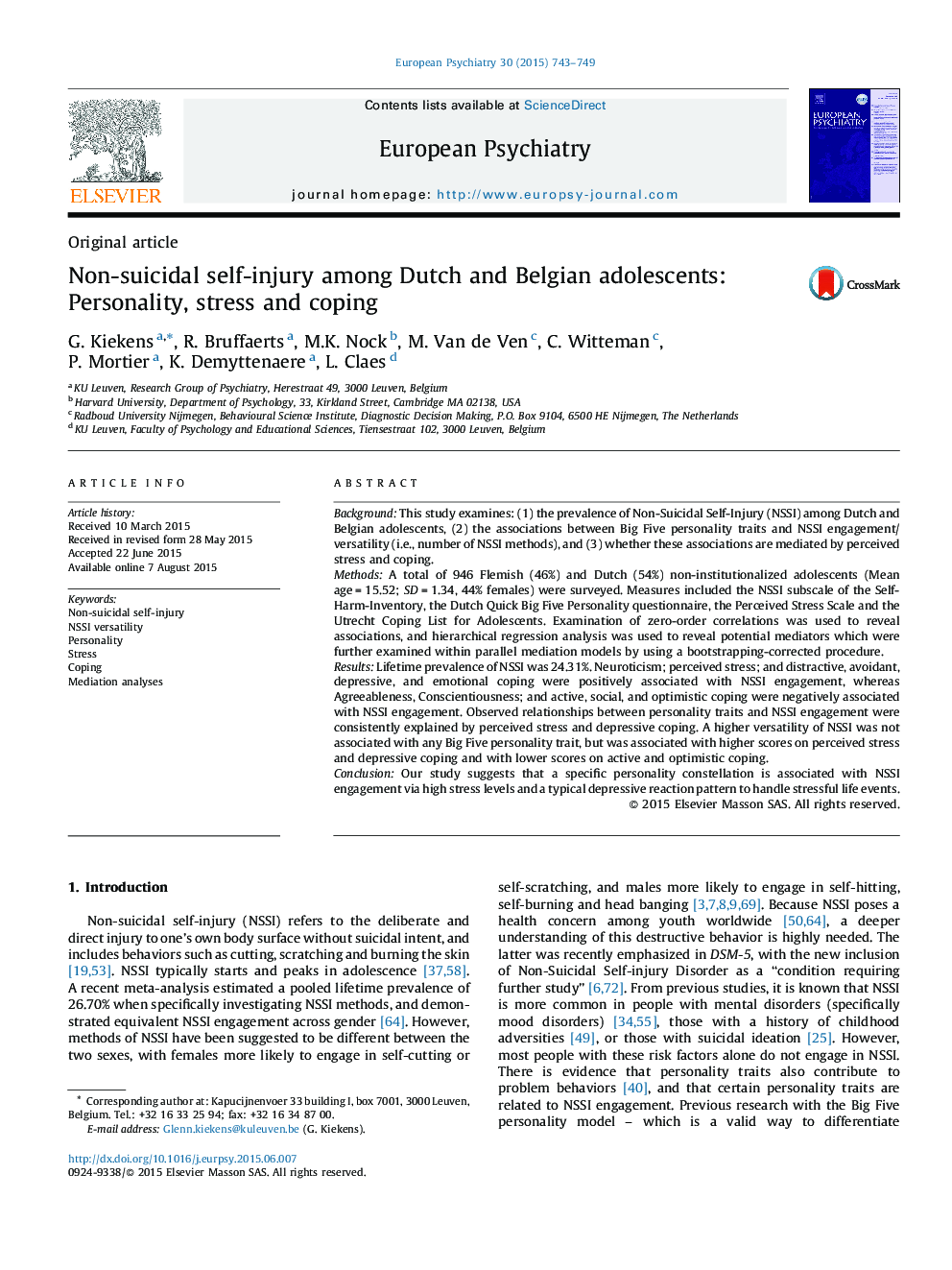| Article ID | Journal | Published Year | Pages | File Type |
|---|---|---|---|---|
| 6229234 | European Psychiatry | 2015 | 7 Pages |
BackgroundThis study examines: (1) the prevalence of Non-Suicidal Self-Injury (NSSI) among Dutch and Belgian adolescents, (2) the associations between Big Five personality traits and NSSI engagement/versatility (i.e., number of NSSI methods), and (3) whether these associations are mediated by perceived stress and coping.MethodsA total of 946 Flemish (46%) and Dutch (54%) non-institutionalized adolescents (Mean age = 15.52; SD = 1.34, 44% females) were surveyed. Measures included the NSSI subscale of the Self-Harm-Inventory, the Dutch Quick Big Five Personality questionnaire, the Perceived Stress Scale and the Utrecht Coping List for Adolescents. Examination of zero-order correlations was used to reveal associations, and hierarchical regression analysis was used to reveal potential mediators which were further examined within parallel mediation models by using a bootstrapping-corrected procedure.ResultsLifetime prevalence of NSSI was 24.31%. Neuroticism; perceived stress; and distractive, avoidant, depressive, and emotional coping were positively associated with NSSI engagement, whereas Agreeableness, Conscientiousness; and active, social, and optimistic coping were negatively associated with NSSI engagement. Observed relationships between personality traits and NSSI engagement were consistently explained by perceived stress and depressive coping. A higher versatility of NSSI was not associated with any Big Five personality trait, but was associated with higher scores on perceived stress and depressive coping and with lower scores on active and optimistic coping.ConclusionOur study suggests that a specific personality constellation is associated with NSSI engagement via high stress levels and a typical depressive reaction pattern to handle stressful life events.
